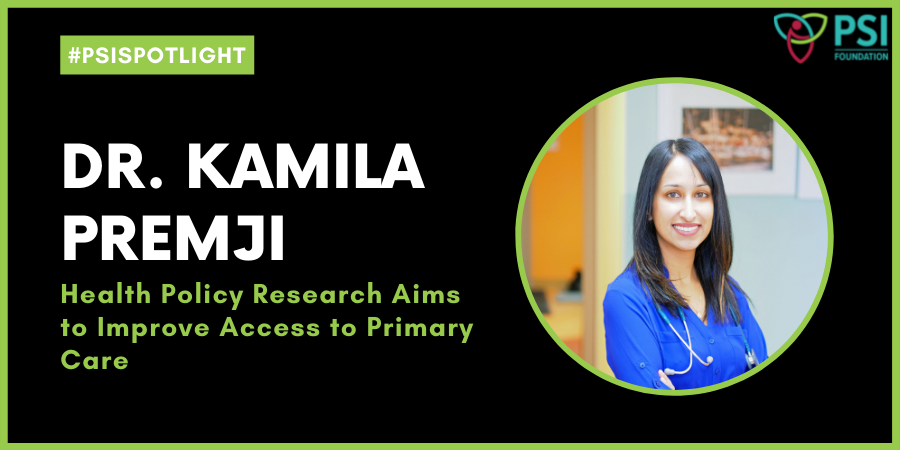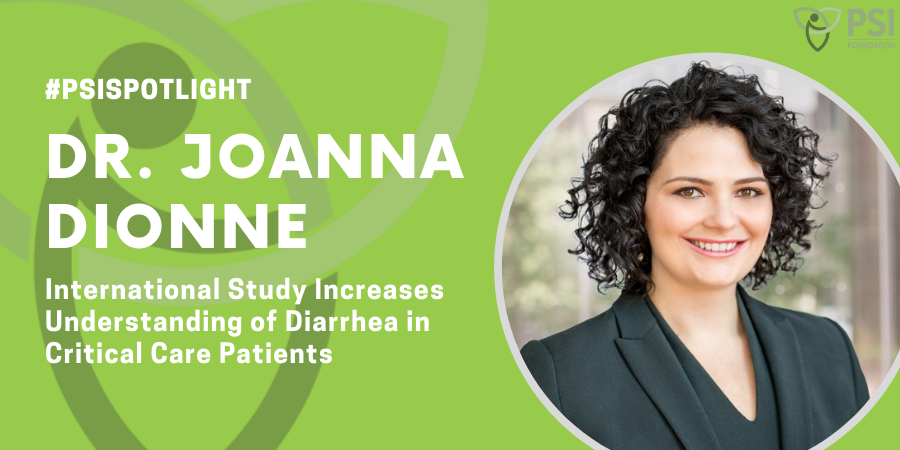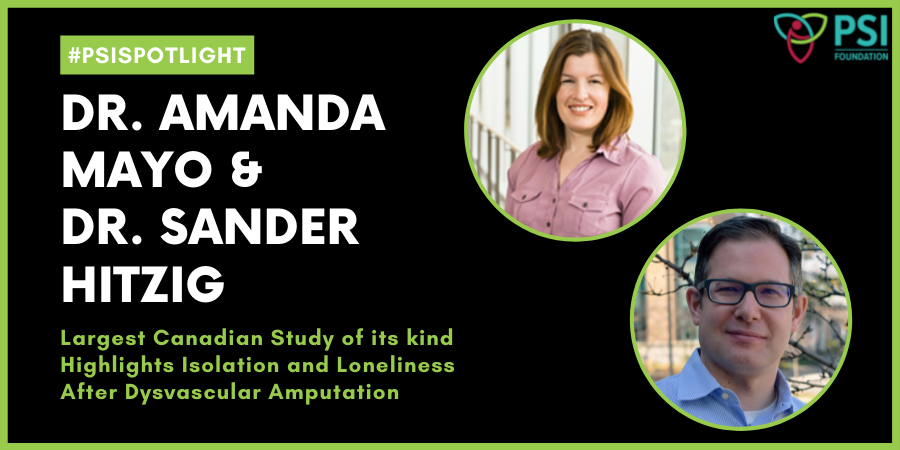“It can be hard for physicians who practice in the community to get research off the ground because they don’t have access to traditional funding streams… I look at the community setting as a real-life lab for doing research, and it’s so beneficial to have funding from PSI that supports physicians in this setting.” – Dr. Kamila Premji
Dr. Kamila Premji, a family physician practising in Ottawa, has been interested in research throughout medical school and residency—with a particular interest in health care policy and access to primary care. Now a PhD candidate in Family Medicine at Western University, she has had the opportunity during her training to lead research that has provided important information about challenges with Ontario’s current system of physician compensation.
“I have been able to use my clinical practice experience in the community, see what my patients were struggling with and look for answers to those problems,” she says. “Research was such a natural path to explore those interests and make a difference in health care policy to help improve access to care.”
Dr. Premji had been working at her community practice for a few years when she decided to pursue a master’s degree, which would give her the skills to undertake more rigorous research, and soon transitioned into the PhD stream.
Early in her graduate training, Dr. Premji was part of a team led by Dr. Richard Glazier that examined whether the physician access bonus led to better patient care.
Ontario introduced the access bonus in 2004 as part of several pay-for-performance incentives in primary care. The access bonus is meant to reward family physicians who organize their practices to be more accessible by providing higher bonuses to physicians whose patients seek less external care, such as walk-in or after-hours clinics. Emergency department visits and specialists are not counted as external care.
However, the access bonus has been a controversial incentive, particularly because patients in urban and rural communities have different access to external health care services. With patients in rural communities often relying on emergency departments, it results in bonuses that may not accurately reflect whether physicians are making their practices more accessible.
“The access bonus creates all kinds of unintended consequences for the way services are delivered, and it can even impact the patient-physician relationship at times,” she says. “It’s such a big part of the dominant payment model in Ontario, so it seemed like something that warranted further exploration.”
In 2019, the team including Dr. Premji published a study that linked administrative data about patients’ health care use with their physicians’ access bonuses. The study found that physicians who earned the highest access bonuses were more likely to practice in rural or small urban areas and have higher proportions of patients with less complex health care needs; but these physicians did not necessarily offer more after-hours care, and their patients had higher rates of emergency room use.
PSI Research Trainee Award project suggests access bonus is not working as intended
Dr. Premji wanted to examine the results in the urban setting more closely, as well as consider a different measure of patient access. With a PSI Research Trainee Award, Dr. Premji and the team examined the access bonus for physicians in large, medium and small urban centres from the perspective of whether it improved patients’ experiences and perceptions of access.
“This is such an important part of understanding what the access bonus payment does from a patient perspective,” she says. “From their perspective, are patients experiencing a better level of service and access with this bonus? Is the bonus doing what it is meant to do?”
The team used data from the Health Care Experiences Survey, a patient experience survey conducted quarterly and funded by the Ontario Ministry of Health, and health administrative data from ICES. They were able to link patients with their physicians and family health teams and find associations between patient perceptions of access and their physicians’ bonuses.
The team found that in large and medium urban centres, where walk-in clinics and after-hours care are easily accessed, patient-reported experiences of access were positively associated with their physician’s access bonus. But this association did not hold in small urban centres, and as in the previous study, higher bonuses did not actually mean that patients experienced better access to their physicians.
“In large and medium urban centres, the higher the bonus, the more satisfied patients were with their access, which suggests that the bonus may be motivating physicians and clinics to organize their services in a way that improves the patient’s experience of access,” she says. “But the availability of resources and patients’ choices are still driving the bonus and having more of an impact, and these are out of physicians’ control.”
The results of both studies suggest that the access bonus is not necessarily doing what it is meant to do and may need to be redesigned to account for the differences in geography and patient experience. The results were published in the Canadian Medical Association Journal in November 2021 and have been presented to stakeholders including the Ontario Medical Association and the Ontario Ministry of Health.
The PSI Research Trainee Award concluded in 2020, but Dr. Premji is continuing research in primary care access while she finishes her PhD and cares for her patients.
“I find myself more alert to what my patients are experiencing that could be answered through policy solutions and through research. These areas fuel each other,” she says. “My clinical care fuels my curiosity, and my interest in research leads me to do these projects that then may have an impact on my patients.”



